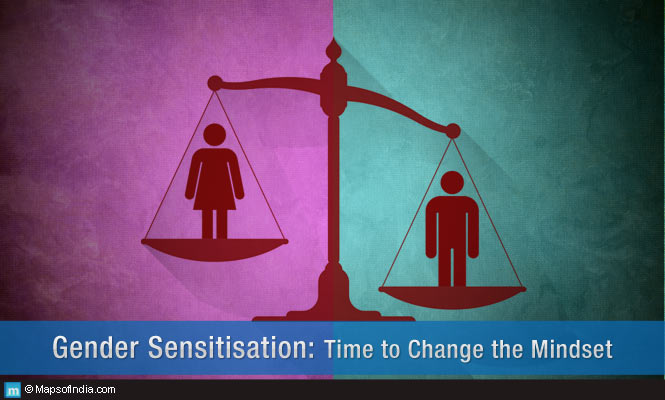Gender roles refer to the view or perception regarding the characteristics, behaviours, and responsibilities believed to be held by individuals according to their gender. For example, women are responsible for taking care of the family and do household works, and men are supposed to be working outside to earn for the family. The roles of the genders are different in every culture, country, and society, which may develop over time.
The stereotypes mainly comprise Physical appearance, Profession, Behaviour, and Characteristics.
Physical appearance: An individual’s appearance gets determined by society according to their gender. A woman gets considered beautiful when they have a thin body and fair complexion. Men become attractive if they have tall height and a muscular body. Men or women who do not have these features are usually disrespected and oppressed by society.
Profession: Women were not allowed to study and were deprived of pursuing their careers. Women were expected to stay in the house, take care of the family and children, and perform household chores. However, men were never stopped from pursuing higher studies or pursuing their careers. Society considered the roles of men as taking all the financial responsibilities and work outside. When these stereotypes started developing, society added some new norms. Women started pursuing their careers, and certain professions got divided amongst the gender. For example, professions like nurses/babysitters/house help are suitable for women and engineers/lawyers/entrepreneurs.
Behaviour: Women must be soft-spoken, calm, and quiet. They should walk, talk, sit and behave in a certain manner. Whereas men ought to be confident, loud, and could display any behaviour as per their wish.
Characteristics: Women should not argue or raise their voice against their fathers/elder brother/husband or any other senior male family members.
How does gender role stereotypes impact an individual?
The stereotypes of gender roles greatly impact every individual who goes through and chooses to fight against them. The pre-existing roles determined by societies for men and women give men the power to act in any way they want with women. People who belong to indigenous areas are mostly affected by these stereotypes. For example, young girls who belong to low-income families are married off at a very young age, as the parents cannot take care of them. The opinion of those girls is never asked for; instead, if they refuse to marry, they are brutally abused by their fathers/brothers. Another profound impact is that women/girls are considered personal properties, which they can use however they wish to, such as forcing for sexual relations without the consent of the girl/women.
Such stereotypes also lead to horrible acts like domestic violence, suicide, acid attacks on women, etc. Gender stereotypes also impact men in many cases. Many boys/men are forced to pursue studies or careers as per the choice of their parents. Men who do not have muscular bodies and not slim in body shape are not considered visually attractive.




